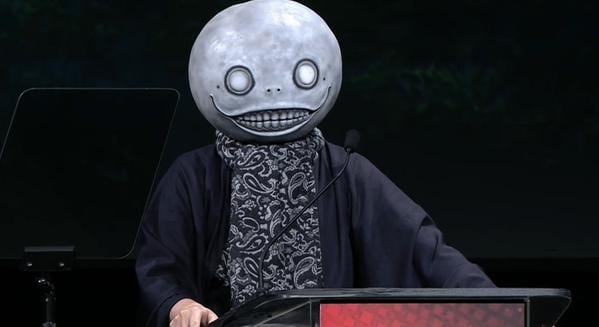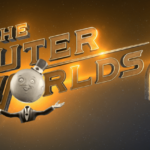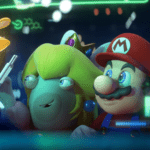NieR Automata’s Director Yoko Taro Talks Success, The Future, Drinking, And Philosophy

Anyone with eyes can tell that the NieR Automata leader Yoko Taro is an eccentric character all on his own. With wise pearls of wisdom and a unique outlook on life, it shouldn’t be all that surprising that the latest title from his creative hat was a renowned success. NeiR Automata was arguably one of the biggest hits of 2017, and Taro sat down in a recent interview to reflect on its success, his future goals, and a few darker turns to the conversation.
Yoko Taro sat down with Game Informer to discuss all things life. Philosophy, success, a good drink at the end the day – no topic was off limits. Here’s a run down of what the creative leader had to say about life as he knows it?
What was the driving force behind NieR Automata?
After we released Drakengard 3, I think everyone was well sick of all the games I made by then, and I really didn’t really want to work anymore. I was thinking I’d probably just go and hide in the mountains and live out the rest of my life as a hermit or something. It just so happens at that time Mr. Yosuke Saito, [who] was obviously a bit tired after his work on Dragon Quest and was not thinking straight, decided to give me another chance with something like NieR. That’s how you saw a new NieR; I’m still not sure how that happened.”
Thoughts on success?
Certainly from my perspective and from the fan’s perspective, I think everyone thought NieR was a very dead IP at that point, so I was very surprised when they started talking about doing another one. I [thought] it would be very interesting when I heard that Platinum would be developing another one. I didn’t think it’d be a hit, though; I [thought] probably it’d be a very niche game. But no, there was certainly potential there. Looking back on it, I think the kind of games that Platinum makes are very much for those action-game maniacs, and it’s a very closed-off area, but it seemed like an excellent fit with the kind of really geeky worlds that Square Enix makes. I think overall, they became a great combination together.”
Many are saying that Nier Automata “saved” Platinum Games, thoughts?
What I think of Platinum [is that] they are a very talented, very unique kind of studio in their own way. […] There’s a lot of really passionate, really skilled young staff directors. And obviously, they go off the line, they give their opinion about what they want to do and how they view games to the top, and then it’s those guys at the top who manage that. It’s a great company.
The other part of your question there about Mr. Kamiya’s announcement that NieR: Automata saved Platinum, I think in part, that’s just him being nice to us and talking us up. I think we’ve got a lot to thank them for as well — certainly all the young development staff I talked about. It really was a great opportunity for them to show what they’ve got and it brought them up two or three levels higher. And as a whole, I think that’s something [the whole NieR team], myself included, really have to thank them for. I think they did a really brilliant job on that.
It’s not that we’ve got anything lined up immediately, but certainly. I discussed a lot with the young staff on the Platinum team and it would be really great to work with them again in the future. I spoke with our producer at Square Enix, Mr. [Yosuke] Saito as well about doing that in the future. Of course, the other thing is that if Square Enix provides the money, I’ll always make anything they ask for.”
Let’s talk death and other motivating themes:
Death is kind of inherent in games. Usually that’s by killing your enemies, so in playing and creating games, it’s something you have to think about because it is integral to a lot of titles. I make my games not really as far as going into big themes of life or how people think of life or anything like that, but I want to make games [that will make people think about] kind of more deep things like, “Why do I play games?” or “What’s my relationship to games?” – things like that.
Drinking helps:
I mean certainly, I’ve always liked drinking a lot, but I remember when I was writing the previous games’ scenarios and the stories for them, I noticed a [recurring theme] that all the stuff I had written when I was really out of it was actually the stuff that everyone really liked. And I thought, “Why the hell should that be?” It worked out. If I drink, I become a bit tipsy and a bit of a fool, and I lose my inhibitions. That kind of uninhibited story writing only comes out when I’m drinking, so I definitely try to drink a lot more whenever I’m writing now. It’s very interesting; when I’m writing when I’m sober, it’s like, “Ah yes, that’s an interesting story, I’ll write that, I’ll put that there.” But that’s very different then when I’ve started drinking. I just start getting involved and having an emotional connection to the characters. I’ll start crying and [I’m] like, “Wow, this is a really sad story!” So yeah, that’s why I think it’s better. Then I’ll pass out, and wake up with tears down my face like, “Oh, I was writing a story.” In the original Nier, there was the story of the wolf and the people with the masks. I remember crying along with the story as I was writing it while I was completely wasted.
To read more of his fascinating thoughts on the gaming industry, his own personal views, and more – you can check out the full interview right here. Thoughts on Taro’s vision and creative process? How did you like the NieR Automata game? Sound off with your thoughts in the comment section below, and don’t forget to check out DFTG on Twitter for gaming and entertainment news live 24/7!
Matt Ruppert715 Posts
Navy Veteran with a penchant for the FPS genre, Chewy has all aspects of the gaming community covered. Don't expect to see him on a console any time soon, however - though he has experience in all platforms, the PC Master Race has a firm hold on him.










